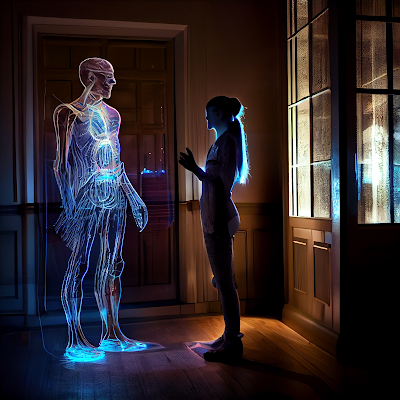The Microbial War: How Do We Beat Bacteria?
Introduction
Bacteria are ubiquitous microorganisms found in various environments, including human skin and gut. While some bacteria play essential roles in ecological processes, others can cause infections and illnesses in humans and animals. The misuse and overuse of antibiotics have led to the development of antibiotic-resistant bacteria, which are difficult to treat. Therefore, it is essential to understand how to control and prevent the spread of harmful bacteria to protect ourselves from bacterial infections.
The Role of Antibiotics in Beating Bacteria
Antibiotics are drugs that kill or inhibit the growth of bacteria by targeting specific features of bacterial cells, such as their cell wall or DNA. Antibiotics are one of the most effective ways to treat bacterial infections, but overuse and misuse of antibiotics have led to the development of antibiotic-resistant bacteria. Therefore, it is essential to use antibiotics responsibly and only prescribe them when necessary.
Responsible Use of Antibiotics to Combat Antibiotic Resistance
To combat antibiotic resistance, it is important to use antibiotics responsibly by only prescribing them when necessary, taking the full course of antibiotics as prescribed, and not overusing them. Antibiotics should only be used to treat bacterial infections, not viral infections, as antibiotics are ineffective against viruses.
Disinfectants and Sterilization Techniques to Beat Bacteria
Disinfectants are chemicals that kill or inhibit the growth of bacteria and other microorganisms on surfaces and in the environment. Sterilization techniques, such as heat and radiation, are used to kill or remove all microorganisms from a particular area or object. Regular use of disinfectants and sterilization techniques can help prevent the spread of harmful bacteria.
Importance of Good Hygiene Practices
Good hygiene practices can help prevent the spread of harmful bacteria. This includes washing your hands regularly with soap and water, avoiding touching your face, covering your mouth and nose when you cough or sneeze, practicing good food hygiene, and avoiding close contact with infected individuals.
Immunization to Control the Spread of Bacteria
Vaccines stimulate the immune system to produce antibodies against specific bacteria or viruses, protecting against future infections. Immunization is an essential tool for controlling the spread of bacterial infections. Vaccines are available for many types of bacterial infections, such as tetanus and meningitis.
The Role of Probiotics in Beating Bacteria
Probiotics are beneficial bacteria that are similar to those that naturally live in our gut. They can help restore the balance of bacteria in the gut, making it harder for harmful bacteria to take hold. Probiotics can be found in supplements or in fermented foods such as yogurt and kefir.
Understanding How Bacteria Spreads
Bacteria can spread through direct contact, such as touching a contaminated surface or coming into contact with an infected person. They can also spread through indirect contact, such as through the air or water. Understanding how bacteria spreads can help individuals take necessary steps to reduce their risk of exposure.
Conclusion
Beating bacteria requires a multifaceted approach, including using antibiotics responsibly, practicing good hygiene, getting vaccinated, using disinfectants and sterilization techniques, incorporating probiotics into one's diet, and understanding how bacteria spreads. By taking these steps, individuals can help protect themselves and others from harmful bacterial infections.














Comments
Post a Comment